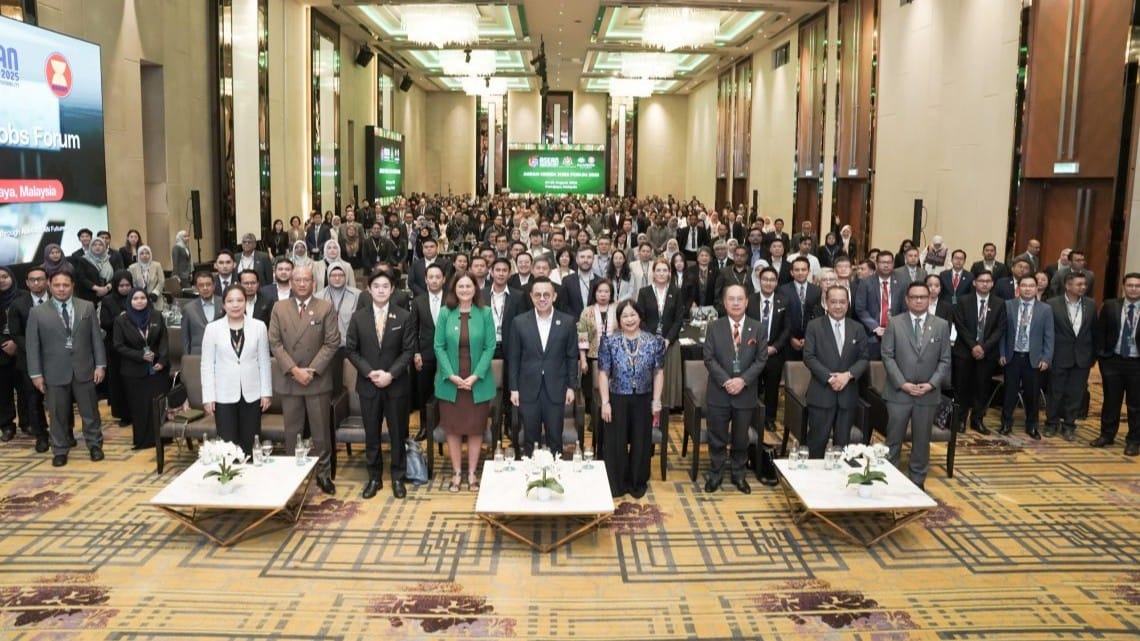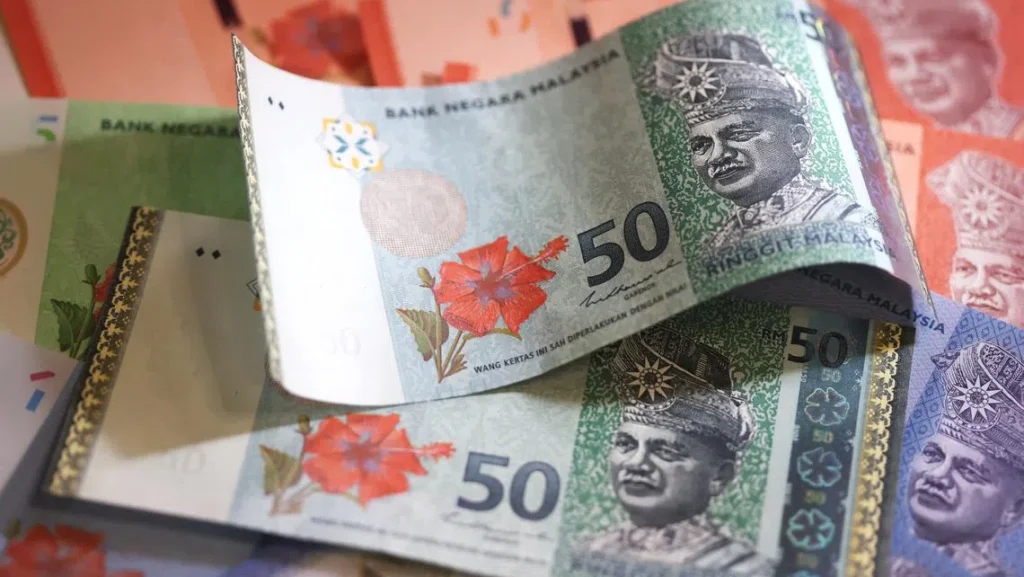Putrajaya, Malaysia — The ASEAN Green Jobs Forum (AGJF) 2025, themed “AI, Digitalisation and Green Jobs: Future-Proofing Skills and Talents for ASEAN”, concluded successfully on 27–28 August in Putrajaya, highlighting the region’s collective push towards sustainable growth and future-oriented workforce development. The event, part of Malaysia’s ASEAN Chairmanship, brought together more than 450 policymakers, industry leaders, and education stakeholders from ASEAN Member States (AMS), Australia, and Timor-Leste (as observer) — both in person and online.
Hosted by Malaysia’s Ministry of Human Resources (KESUMA) with support from the ASEAN Secretariat (ASEC) and the Government of Australia under the Aus4ASEAN Futures Initiative, the two-day forum underscored the urgent need for skills transformation to meet the demands of the green economy. Opening the event, YB Steven Sim Chee Keong, Malaysia’s Minister of Human Resources, emphasised that “collaboration and consensus remain ASEAN’s most powerful tools” for advancing sustainability goals, citing initiatives like the ASEAN Power Grid and cross-border payment systems as examples of successful regional cooperation.
Australia’s High Commissioner to Malaysia, Danielle Heinecke, reaffirmed Canberra’s commitment to ASEAN’s green transition, stressing the importance of “cross-sector collaboration to deliver future-ready jobs and accelerate the shift towards a low-carbon economy.”
A high-level plenary session set the tone for the discussions, featuring insights from YB Datuk Gerawat Gala, Deputy Minister in the Premier of Sarawak’s Department of Labour; Carmela I. Torres, Undersecretary for Employment and Human Resources of the Philippines; and Jakkraphong Sumethchotimetha, Advisor to Thailand’s Minister of Labour. Together, they outlined national and regional strategies to expand digital skills, strengthen sustainable industries, and harness artificial intelligence (AI) as a catalyst for green employment creation.
Across ten thematic sessions, participants explored a wide spectrum of topics — from green value chain opportunities and real-world case studies to innovative public-private partnerships and scalable workforce development models. The sessions highlighted the growing alignment between digital transformation and sustainability agendas, as well as ASEAN’s determination to ensure that workers and businesses thrive in a rapidly evolving economic landscape.
In his closing remarks, Mr Sutekno Ahmad Belon, Deputy Secretary-General (Operations) at KESUMA, stressed the importance of “a just and inclusive transition” to a green workforce, calling for sustained regional cooperation to support vulnerable groups during economic transformation. Ms Terri-Ann O’Quinn, First Secretary (Infrastructure, Energy and Climate) from the Australian Mission to ASEAN, praised the forum’s role in “shaping practical cooperation and setting a clear roadmap for action.”
The event concluded with discussions among AMS representatives on the draft Framework and Action Plan for a Just and Inclusive Transition to Green Jobs, a key policy document designed to guide regional labour markets through the twin transitions of digitalisation and decarbonisation.
With ASEAN’s green economy expected to generate millions of new jobs over the next decade, the forum marked a significant step toward preparing the region’s workforce for a future defined by sustainability, innovation, and inclusivity.









